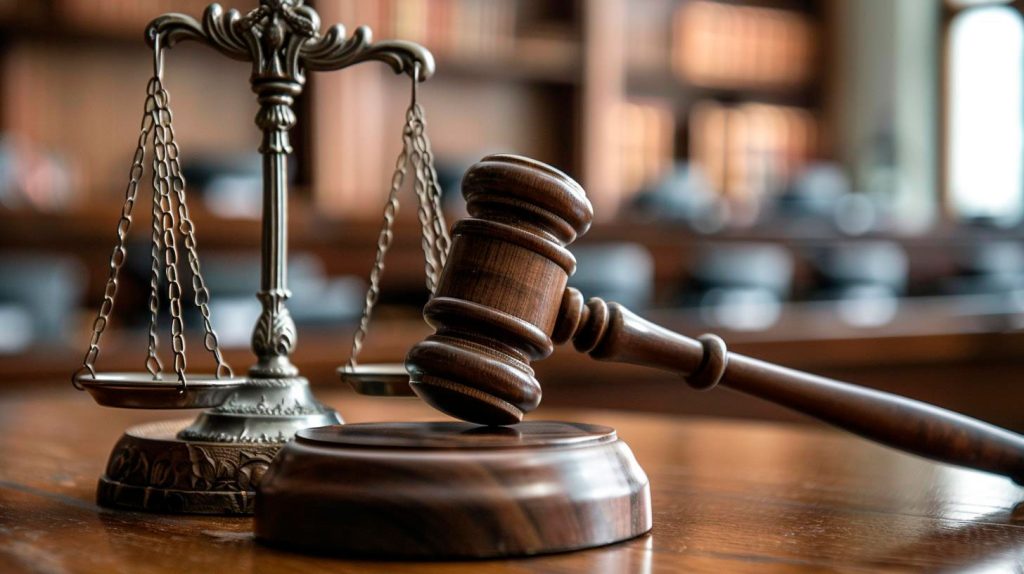
Resources Available for Victims of Natural Disasters to Navigate Credit Score Challenges
According to the Federal Emergency Management Agency (FEMA), natural disasters such as hurricanes, wildfires, and floods can have a lasting impact on credit scores. Many individuals may find themselves in a difficult financial situation due to the damages caused by these disasters, leading to missed payments, increased debt, and overall financial instability.
The Impact of Natural Disasters on Credit Scores
Following a natural disaster, individuals may face a myriad of challenges that can negatively impact their credit scores. These challenges may include:
- Missed payments on loans and credit cards due to financial hardships
- Inaccurate information on credit reports due to the lack of access to financial documents
- Increased debt from repairs and rebuilding efforts
These factors can all contribute to a decrease in credit scores, making it harder for individuals to access credit and loans in the future.
Resources Available for Victims
Fortunately, there are resources available for victims of natural disasters to help them navigate credit score challenges and rebuild their financial stability. Some of these resources include:
- Financial counseling services provided by organizations such as the National Foundation for Credit Counseling
- Assistance programs offered by government agencies and non-profit organizations
- Disaster assistance loans with flexible repayment options
By taking advantage of these resources, individuals can take proactive steps to address their credit score challenges and work towards financial recovery.
Benefits of Using Resources
Utilizing the resources available for victims of natural disasters can provide several benefits, including:
- Access to financial experts who can provide personalized advice and guidance
- A better understanding of the options available for rebuilding credit and financial stability
- Peace of mind knowing that there is support available during a challenging time
By leveraging these resources, individuals can take control of their financial situation and work towards improving their credit scores.
Natural disasters can have a significant impact on credit scores, but there are resources available to help victims navigate these challenges. By utilizing financial counseling services, assistance programs, and disaster assistance loans, individuals can take proactive steps towards rebuilding their financial stability. These resources provide essential support and guidance during a difficult time, helping individuals overcome credit score challenges and work towards a brighter financial future.
It is crucial for victims of natural disasters to be aware of these resources and take advantage of them to ensure long-term financial recovery. By working with experts and utilizing available programs, individuals can rebuild their credit scores and regain financial stability in the aftermath of a natural disaster.
Steps to Take to Protect Your Credit Score After a Natural Disaster
Here are some important steps to consider:
1. Contact Your Creditors
As soon as possible after a natural disaster strikes, it is important to contact your creditors to inform them of your situation. Many creditors have programs in place to help individuals affected by natural disasters, such as waiving late fees, reducing interest rates, or offering payment extensions. By communicating with your creditors, you can work together to find solutions that will help you avoid negative marks on your credit report.
2. Monitor Your Credit Report
One of the best ways to protect your credit score after a natural disaster is to regularly monitor your credit report. Look for any inaccuracies or fraudulent activity that may have occurred as a result of the disaster. By staying vigilant and addressing any issues promptly, you can prevent long-term damage to your credit score.
3. Consider Placing a Fraud Alert or Credit Freeze
If you believe that your personal information may have been compromised during a natural disaster, it may be wise to place a fraud alert or credit freeze on your credit report. A fraud alert notifies creditors to take extra precautions before extending credit in your name, while a credit freeze restricts access to your credit report, making it more difficult for identity thieves to open accounts in your name.
4. Keep Documentation of Your Losses
After a natural disaster, it is important to keep thorough documentation of any financial losses you have incurred. This includes receipts for repairs, insurance claims, and any other expenses related to the disaster. By having this documentation on hand, you can provide evidence to creditors or credit bureaus if necessary.
5. Stay in Communication with Your Lenders
If you are facing financial difficulties as a result of a natural disaster, it is important to stay in communication with your lenders. By being proactive and transparent about your situation, you can work together to find solutions that will help you avoid negative impacts on your credit score. Lenders may be willing to offer forbearance or modification options to help you get back on your feet.
6. Seek Legal Assistance if Necessary
If you are struggling to protect your credit score after a natural disaster, it may be helpful to seek legal assistance. An experienced attorney can help you understand your rights and options, navigate complex financial issues, and advocate on your behalf with creditors or credit bureaus. Legal representation can be invaluable in protecting your financial stability during difficult times.
Natural disasters can have a devastating impact on our lives, including our credit scores and financial well-being. By taking proactive steps to protect your credit score, such as communicating with creditors, monitoring your credit report, and seeking legal assistance if needed, you can safeguard your financial future and rebuild after a disaster. Remember, your credit score is a valuable asset that deserves protection, especially in challenging times.
Tips for Rebuilding Your Credit Score After a Natural Disaster
If your credit score has taken a hit due to a natural disaster, there are steps you can take to rebuild it.
Understand the Impact
Before you can start rebuilding your credit score, it’s important to understand how a natural disaster can affect it. Late payments, missed bills, and increased debt are common consequences of a disaster. These negative marks on your credit report can lower your score significantly and make it harder to get approved for loans or credit cards in the future.
Check Your Credit Report
The first step in rebuilding your credit score is to check your credit report for any inaccuracies or errors. Look for any late payments or missed bills that were a result of the natural disaster and dispute them with the credit bureaus. Cleaning up your credit report can help improve your score.
Work with Creditors
If you were unable to make payments on time due to a natural disaster, reach out to your creditors and explain your situation. Many creditors are willing to work with you during tough times and may offer payment plans or other solutions to help you get back on track. By communicating with your creditors, you can avoid further damage to your credit score.
Pay Bills on Time
One of the best ways to rebuild your credit score is to pay your bills on time. Set up automatic payments or reminders to ensure that you never miss a payment. Making timely payments shows lenders that you are responsible with your finances and can help improve your credit score over time.
Reduce Your Debt
High levels of debt can negatively impact your credit score. Focus on paying down your debt and avoid taking on new debt if possible. By reducing your debt-to-income ratio, you can improve your credit score and show lenders that you are a responsible borrower.
Apply for New Credit Wisely
After a natural disaster, you may be tempted to apply for new credit to help you rebuild your life. While applying for new credit can help improve your credit mix, be sure to do so wisely. Only apply for credit that you truly need and can manage responsibly. Too many credit inquiries can lower your score.
Monitor Your Credit Score
Regularly monitoring your credit score can help you track your progress and identify any changes that need to be made. There are many free credit monitoring services available that can help you keep an eye on your score and report any suspicious activity. By staying vigilant, you can ensure that your credit score continues to improve.
Seek Professional Help if Needed
If you are struggling to rebuild your credit score on your own, consider seeking help from a credit counselor or financial advisor. These professionals can offer personalized advice and guidance to help you get back on track. They can also help you create a budget, manage your debt, and improve your credit habits.
Rebuilding your credit score after a natural disaster may take time and effort, but it is possible with the right strategies in place. By understanding the impact of a disaster, checking your credit report, working with creditors, paying bills on time, reducing debt, applying for new credit wisely, monitoring your credit score, and seeking professional help if needed, you can take control of your financial future and rebuild your credit score. Remember, patience and persistence are key when it comes to improving your credit score.
Understanding the Impact of Natural Disasters on Credit Scores
The Impact of Natural Disasters on Credit Scores
When a natural disaster occurs, it can disrupt the lives of those affected in numerous ways. Homes may be damaged or destroyed, businesses may be forced to close, and individuals may be left without income. In the aftermath of such events, many people are left struggling to make ends meet, leading to missed payments on bills and other financial obligations.
Missed payments can have a significant negative impact on credit scores. Payment history is one of the most important factors that credit bureaus consider when calculating credit scores, accounting for 35% of the total score. When payments are missed or made late, it can result in a lower credit score, making it more difficult to qualify for loans, credit cards, or other financial products in the future.
According to a study conducted by the Federal Reserve Bank of New York, individuals living in areas affected by natural disasters experience an average 37-point drop in their credit scores within the first year following the event. This drop can make it harder for these individuals to access credit at affordable interest rates, hindering their ability to rebuild and recover financially.
Steps to Protect Your Credit Score
While the impact of a natural disaster on your credit score may be significant, there are steps you can take to protect yourself and minimize the damage. Here are some tips to help you safeguard your credit score in the event of a natural disaster:
- Monitor Your Credit Report: Keep a close eye on your credit report in the aftermath of a natural disaster. Look for any errors or inaccuracies that could be negatively impacting your score, and report them to the credit bureaus for correction.
- Contact Your Creditors: If you anticipate having trouble making payments due to a natural disaster, contact your creditors as soon as possible. Many lenders are willing to work with customers facing hardship to create a payment plan or defer payments until their financial situation improves.
- Apply for Assistance: Look into government assistance programs or financial relief options that may be available to you following a natural disaster. These programs can help you bridge the gap and cover expenses while you work to rebuild.
- Rebuild Your Credit: Once the immediate crisis has passed, focus on rebuilding your credit. Make all payments on time, reduce your overall debt, and avoid opening new credit accounts unless absolutely necessary.
The Importance of Credit Counseling
For many individuals impacted by a natural disaster, navigating the complexities of credit scoring and financial recovery can be overwhelming. This is where credit counseling can play a crucial role. Credit counselors are trained professionals who can help you understand your credit report, develop a plan to improve your credit score, and provide guidance on managing your finances effectively.
According to the National Foundation for Credit Counseling, individuals who work with a credit counselor experience an average credit score increase of 50 points within the first six months of receiving counseling. This improvement can open up opportunities for better financial products and lower interest rates, ultimately saving you money in the long run.
Natural disasters can have a significant impact on credit scores, making it harder for individuals to access credit and financial resources when they need them most. By taking proactive steps to protect your credit score, seek assistance when needed, and work with a credit counselor to rebuild your financial health, you can minimize the long-term effects of a natural disaster on your creditworthiness.
Remember, your credit score is an important financial tool that can help you achieve your goals and secure your financial future. By staying informed and taking control of your credit, you can weather any storm that comes your way.













Yeah, it’s true! The law allows victims to place a free 90-day fraud alert on their credit reports to protect against identity theft after a disaster.
Has anyone here actually had to use the credit score protections after a natural disaster?
So, how exactly do I go about putting a fraud alert on my credit report after a natural disaster?
Wow, that’s good to know! I always worried about my credit score if a disaster hit, but now I feel more prepared.
Wait, so does that mean my credit score won’t be affected if I’m a victim of a hurricane or something?
I haven’t personally, but I know people who have, and they said it was a huge relief to know that their credit was being looked out for during such a stressful time.
That’s right! The alert can help prevent new accounts from being opened in your name without your permission, so your credit score should remain safe.
Yeah, it’s definitely a relief to know that there are protections in place to help keep your credit safe during such a difficult time.
You can contact any one of the three major credit bureaus – Experian, Equifax, or TransUnion – to request the fraud alert. They are required to notify the other bureaus, so you only need to contact one.
It’s great to hear that these protections are actually helping people when they need it most.
OMG, this is such an important topic! I heard that victims of natural disasters can get their credit protected – is that true?